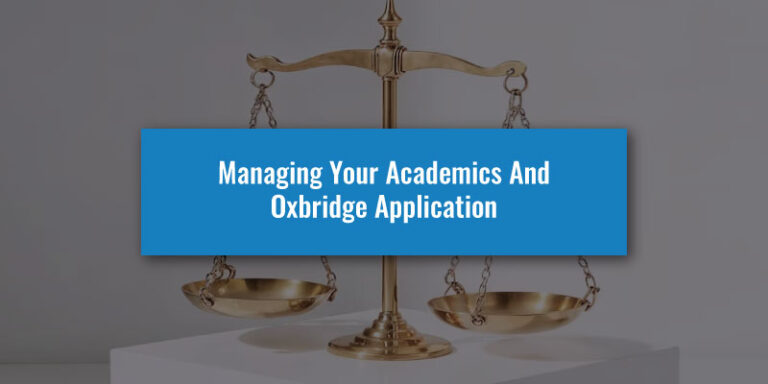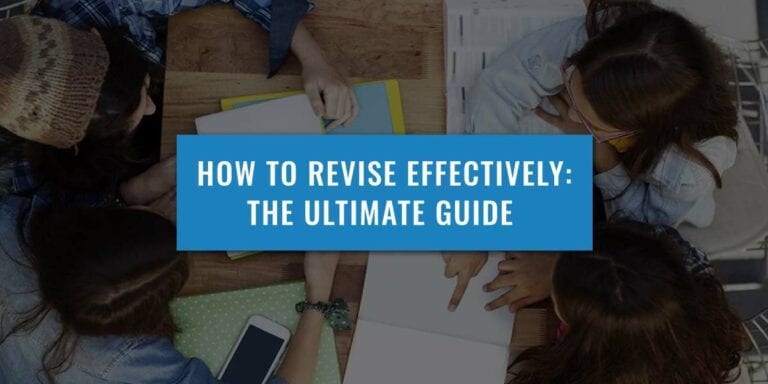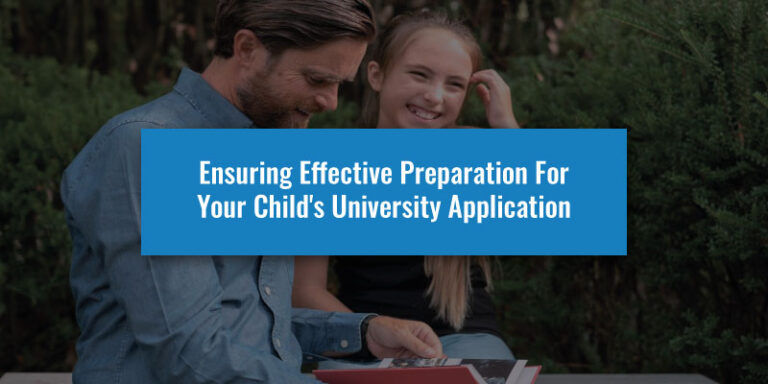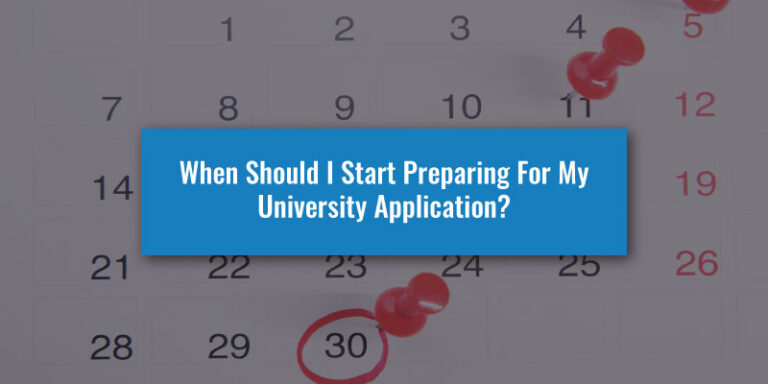The use of generative artificial intelligence (GenAI) is now commonplace in everyday life. This includes education, but using AI for study can pose some major risks that could get you in trouble.
AI can be a useful tool to support you with your work, but it’s important to understand its limits and be aware of the issues that can come from using it irresponsibly. In this guide, we’ll explore four key ways that AI can negatively impact your studies and see how we can mitigate these risks.
Before we start, you may also want to check out our AI Study Guide, where we detail the ways that AI can be used to benefit your school work.
AI Misinformation
One of the most popular use cases for AI is to search for information quickly and easily. Generative AI tools have become a popular alternative to using search engines, while said search engines have also begun implementing GenAI search features.
On paper, GenAI sounds like the perfect search tool as it can scour large portions of the internet in a second and consolidate the relevant information into a manageable and customisable output. However, as you’re likely aware, the internet is an enormous thing, and there is very little protection in place to stop misinformation and flat-out lies from being presented as fact.
When researching for an assignment or trying to find information to help you with a problem, misinformation is your worst nightmare. Sometimes, you just can’t find the information you need, so having something presented to you in an instant can feel like a lifesaver, even if you have no idea if the information is correct. However, if you turn in that assignment with incorrect information, you run the risk of lowering your grade or even failing.
Can AI Lie?
When asking Chat-GPT if it can tell a lie, it responds with the following:
“I aim to give accurate, helpful information and don’t “lie” in the human sense. My responses are based on the information in my training data and the live information I can gather when using browsing (if enabled). However, there can be times when I might misunderstand a question, interpret it too literally, or miss nuances, which could inadvertently lead to an incorrect answer.”
This is a full acknowledgement that the information the programme provides has the potential to be incorrect, so how can we prevent the risk of submitting false information in our work?
How To Prevent Misinformation
Avoiding misinformation can be hard, depending on the topic you’re researching. When information is easily available, it’s simple to just Google your question and confirm accuracy from a reliable site. However, when the information isn’t available, you’ll have to either search through pages of results or simply omit the information from your project if possible.
However, there is another option. GenAI chatbots like Chat-GPT will attempt to answer most questions posed to them, even if the data isn’t easy to find. If the response you get features information that you couldn’t find yourself, it’s possible to ask the chatbot for its sources (some will even provide this information automatically).
Once you’ve got a source website, simply review it to determine its reliability and find the information quoted. As for what makes a website reliable, ensure the site is an official source, has a credible domain (e.g. .edu, /gov, .org, etc.) or has input from credible individuals in the relevant industry. Avoid social media platforms like Reddit or Twitter unless the user has provided a credible source of their own.
All of this should really be used in essential scenarios only, as anyone who is serious about their education should be learning independent research skills. This is especially true for those applying to prestigious universities like Oxford or Cambridge, as independent study and research is required by all students.
Also, keep in mind that sometimes the information you need won’t come from a website, it will be from an actual book. Most books are credible sources in academia, so you need to be prepared to search through the library to find relevant titles for your task. Digital libraries are also a good option, and GenAI tools generally aren’t allowed to scan published titles for information due to copyright protections.

Get dedicated, personalised support from expert Oxbridge tutors with UniAdmissions
The most effective way to revise and prepare is by engaging with our expertly designed Oxbridge Programmes. These include personalised one-on-one sessions with a skilled Oxbridge tutor, intensive live courses, an extensive library of targeted preparation materials, and additional valuable resources to support your success.
Discover our Oxbridge Premium Programmes below and find out how you can enrol and triple your chances of success.
AI Detection
As AI continues to integrate into our day-to-day lives, so too are the tools designed to identify it. While still in their infancy, AI detection tools have been put in place to prevent fully AI-generated work from being accepted in schools and universities. This is an important protection to implement, but these tools currently aren’t perfect and can impact you whether you use AI or not.
The first risk to your work is obvious; if you submit work with significant portions of AI content, it will most likely not be accepted. This is a good thing, as GenAI has enabled students to generate full essays, presentations or projects with little to no input. The point of education is to learn new things and develop abilities, so having a machine do the work for you makes the whole process pointless.
However, it’s not always clear what counts as AI-generated content and if there’s an allowance of generated content available. There’s no single standard for this, so it would be impossible to answer this question, but you should ask your teacher/lecturer about this information if you’re unsure.
As we’ve said, GenAI can be used to streamline processes in certain places without removing the skills needed to complete the work. However, where there is no allowance for GenAI content, you’ll need to ensure that none is included. However, it’s rare for projects to have a 0% allowance for AI content, as the detectors can sometimes incorrectly label handwritten work as AI.
That brings us to our next risk: the potential of your handwritten work being labelled as AI. You may have heard horror stories of people spending hours on projects for them to be flagged as mostly AI-generated content.
AI Detectors mostly assess content on Perplexity (the unpredictability of text) and Burstiness (the variation of sentence structures), though. The levels that these are detected vary between programmes. Not every human will write in varied or unpredictable ways (particularly in academic writing where clarity and detail are essential), which would put that work at risk of being flagged.
In most cases, there will be ways of proving that the work is unique to you, but the hassle of having to defend your work can be a nuisance, especially when you’ve got a busy work schedule.
AI and Plagiarism
As well as outputs being flagged as AI, also be aware that AI can produce plagiarised content that will be flagged in plagiarism tests. As all information AI provides is based on existing content, there is a risk that some outputs will include directly copied excerpts that have not been altered at all. If you copy these excerpts directly to your own work without changes, this will be flagged as plagiarised content. Be sure to run your work through a plagiarism detector as well as an AI one to prevent any copied content from being submitted.
How To Prevent Your Work Being Flagged As AI
Whether you’ve used a little bit of AI or none at all, the best way to defend your work against AI detection is to run it through various AI detection tools yourself before submitting. There are many available online, though these won’t be as robust as the ones used in schools and universities. However, getting an assessment from at least two of these detectors will also allow you to see which areas may be flagged.
If any sections of your work are flagged, you can go back and rewrite them to add more variety to the writing style. You can run work through these detectors as many times as you need, so keep going until your work comes back at the rate you’re comfortable with. Just remember to always get multiple opinions, as the AI detector you choose may not be the most well-tuned.
If this doesn’t work and large portions of your work still get flagged, speak with a teacher or mentor to get their support on the situation.
Access "The Big Book Of Oxbridge Applications" For FREE
Those looking to apply to Oxford or Cambridge will need to use far more than AI to prepare for their application, so start with The Big Book Of Oxbridge Applications, available for free here! Through over 350 pages, you’ll learn about everything from colleges to interviews. Inside, you’ll find:
- Over 40 admissions test practice questions
- 28 example Oxbridge Personal Statements
- Interviews with Oxbridge students and graduates
- Additional downloadable resources
Fill in your details below to claim your digital copy today!
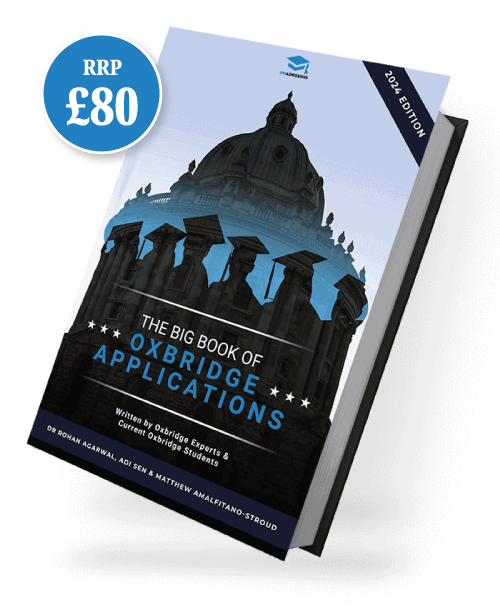
Learning Dependancy
One of the greatest concerns that people have about the rise of AI is the development of dependency on these tools for otherwise simple tasks. GenAI tools can offer help with simple, monotonous tasks and can speed things up when you’re in a hurry, but it’s important to not lose sight of the skills required to perform these tasks in the first place.
When it comes to AI in education, we’ve already covered how AI can support your writing and research. However, tools are available that can instantly answer questions in exams, multiple-choice quizzes and more. For mocks and other cases where you have access to these tools, they have the potential to earn you full marks in any test, but is that really a good thing?
The point of quizzes and mock tests is to help you cement the knowledge you’ve learned and prepare you for the actual test, but neither of these things will happen when using AI to answer all of the questions in the test. Using these tools too frequently can eventually lead to dependency, which will leave you struggling when you’re in an environment without access to them.
How To Prevent AI Dependency
Preventing dependency on AI is simple: limit your usage of the tools to the bare minimum. It’s not a bad thing to use AI for time-consuming tasks that don’t offer any form of learning or skill development, but the lines begin to blur when using AI for tasks that require more advanced skills.
It’s down to you to determine where you draw the line on AI usage, but it’s important to do things without it every once in a while, even if it’s something boring and monotonous. It’s crucial that you practice your skills regularly, even if they can be supported with AI.
AI Personal Statements
Lastly, let’s touch on Personal Statements. One use-case for AI that has become more common lately is using GenAI to produce a draft of your Personal Statement based on information provided in the prompt. This can be a quick and interesting way of coming up with ideas for how to approach your statement, but it has the same risks as using AI for any other writing task.
Using AI to write your Personal Statement is particularly difficult because of the nature of the document. Your Personal Statement is meant to be personal, meaning it is specifically about you and your experiences. This isn’t something that AI can write about as the content is not available to learn from, so any AI Personal Statements are dependent on the information you directly provide to the chatbot.
Although this is all possible to do, the output you’ll get from these tools will be far from ideal for a Personal Statement to send to universities. While good for providing a basic structure, a GenAI Personal Statement isn’t able to showcase your personality or thought process, making the final product fairly weak.
We’ve already covered the ways AI can be beneficial to your Personal Statement writing process, as well as some additional uses that you shouldn’t use it for, so check out our AI Personal Statement Guide for more on this topic.
That concludes our guide to AI Safety. Keeping yourself from all these risks in an increasingly AI-dependent world is becoming harder and harder as the technology evolves and lines between AI and reality are blurred. AI usage has become an inevitability in most cases, but it’s important to stay in tune with the skills you’ve developed and continue to work to learn more skills.
Dependency on AI will only lead to trouble in the end, when you’re faced with a situation that requires your own abilities, so aim to become a well-rounded individual who can use AI where convenient but is also able to complete tasks on your own and add your own unique touch. Some skills will never become out of date, even if AI continues to take over more tasks.
We hope you’ve found this guide useful! If you’d like to learn more study skills or are particularly interested in learning about the admissions process for the University of Oxford and the University of Cambridge, be sure to check out our library of free guides for more. We also provide comprehensive one-to-one support for those applying to Oxbridge, Imperial, Medicine and Law, so be sure to check out our premium programmes today!
UniAdmissions offers the most effective Oxbridge application support available
At UniAdmissions, we’ve spent over ten years developing our preparation materials, building connections with world-class Oxbridge tutors and perfecting our formula for Oxbridge success. Thanks to our carefully crafted curriculum, we get more of our students into Oxbridge than any other school.
Discover our Oxbridge Premium Programmes below and find out how you can enrol and triple your chances of success.


